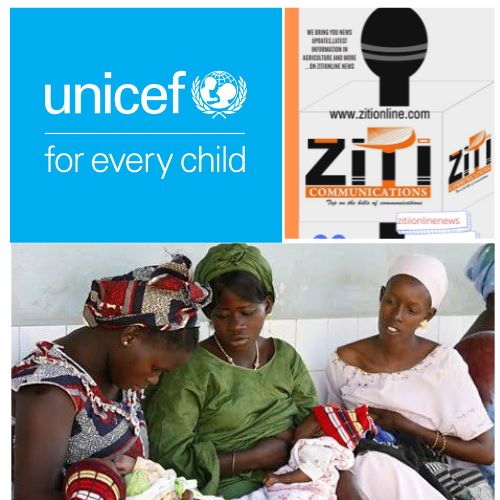Billy Willy, Gombe
For Nigeria to close key gaps in breastfeeding support, the United Nations Children Fund (UNICEF) has buttressed the need for more States to extend maternity leave for breastfeeding mothers to six months.
In most States of Nigeria, three to four months are the traditional official maternity leave granted to nursing mothers and in many cases, it is not a paid maternity leave.
This was the concern raised by UNICEF as the World marks the 2024 Breastfeeding Week from 1st to 10th August. The theme for this year is “closing the gap: breastfeeding support for all”.
According to Cristian Munduate, UNICEF Nigeria Country Representative, despite the ten per cent increase in exclusive breastfeeding of infants under six months in the last 12 years, there are persistent challenges that must be addressed.
She identified the key gaps in breastfeeding support to include, insufficient maternity leave policies, lack of work place support and inadequate access to breastfeeding education and services in rural areas.
She revealed that only seven States offer the recommended 24 weeks (6 months) paid maternity leave and many women return to work without the necessary support to continue breastfeeding.
This has therefore made it necessary for collaboration between Government employers, healthcare providers, and communities in order to close the existing gaps.
It has also become necessary for policies to be enacted to extend paid maternity leave, create breastfeeding friendly workplaces, and provide comprehensive breastfeeding education and support services.
Munduate explained that, “breastfeeding is the foundation of life long health and wellbeing. It is a simple cost effective and natural way to provide infants with nutrients they need for healthy growth and development.
“However, despite it’s proven benefits, exclusive breastfeeding rates in Nigeria remains low. Many mothers face cultural, social and practical barriers that prevents them from breastfeeding exclusively for the first six months of their child’s life”, she stated.
It is during this critical period of early growth and development, the antibodies in breast milk protect babies against illness and death.
This is especially important during emergencies when breastfeeding guarantees a safe, nutritious and accessible food source for infants and young children.
Breastfeeding reduces the burden of childhood illness and risks of certain types of concerns and non-communicable diseases for mothers.
In the last 12 years, the number of infants under six months of age who are exclusively breastfed in Nigeria has increased by more than 10 per cent.
Currently, 34 per cent of infants in Nigeria benefit from this healthy start in life translating to hundreds of thousands of babies whose lives have been saved by breastfeeding.
While this significant leap brings Nigeria closer to the World Health Organisation target of increasing exclusive breastfeeding to at least 50 per cent by 2025, the persistent challenges mentioned earlier and some others, must be addressed.
